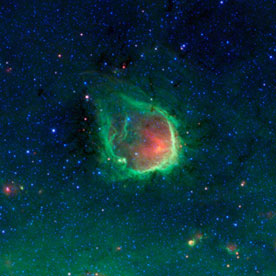
This is a book about the profound harmony that results from understanding the world as an awesome but comprehensible creation — devised by a Divine hand yet describable by human science — whose lessons are revealed best by appreciating both. This book is not about reconciling science and religion; it is not about using science to prove or disprove Scripture; and it is certainly not about why one approach is better or worse than another. These popular tactics are not just wrong — they set up a false confrontation that misses what is important. Instead, this book is about learning and growing from all that we experience. In the words of Solomon, “Open yourself up!” (Song of Songs 5:2). The cosmos calls to the religious and spiritually minded, to the atheist and the skeptic, to have open minds.
The past 20 years has seen a dramatic development: the death of the “god of the gaps.” This god was the one who, for most of history, was invoked to explain the mysterious workings of the world — the creation of the universe, for example, or the nature of life. This god was needed to explain the gaps in our understanding — but during the past decades nearly all such gaps have disappeared. My own field, astrophysics, can today explain plausibly, although certainly not completely, how the universe came into being and how the Earth was formed. Biology, likewise, has a firm handle on what makes life tick. Yes, there are still many deep puzzles, but the steady successes of science over the past 100 years provide reassurance that even current puzzles will eventually yield to the scientific methods. Never before has science been able to speak with such authority on fundamental questions that once were the sole purview of religion. So successful is science that religion today tends to seek approbation by agreeing with it.
At the same time, we have uncovered profound mysteries — dark matter and dark energy, for example, a fantastic 95% (!) of the cosmic order but of completely unknown character. Consciousness remains a complete mystery. These discoveries awaken a tangible sense of humility: We do not know it all. Moreover they deflate the satisfaction science takes from its successes: Perhaps future answers will also raise more mysteries than they resolve.
The psalmist sings, “How great are the works of the Lord! How profound are their principles! Yet an uninformed person does not recognize them, and simple-minded explanations cannot provide an understanding…. (Psalm 92)”
This book goal, and the author’s hope, is to help awaken people to the fabulous wonders of the universe as revealed by science, and to the profound insights on the possible meanings of these astonishing discoveries as taught by religion and, in particular, Jewish mysticism.
Some excerpts from the book’s preface can be found HERE; its concluding meditation can be found HERE.